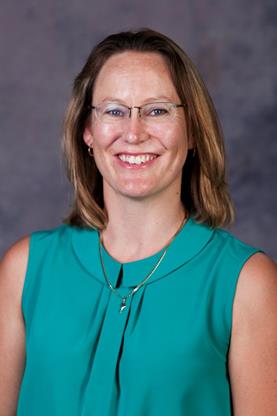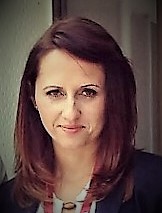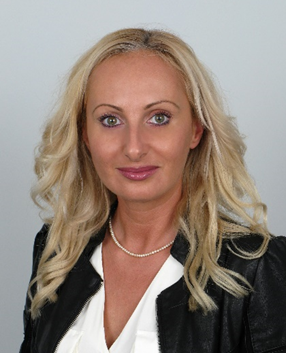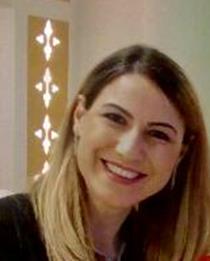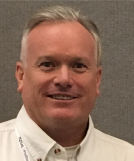WORKSHOP PRESENTERS
|
Prof. Dr. Dané COETZEE Prof. Dané Coetzee is currently an associate professor in the School for Human Movement Sciences at the North-West University’s Potchefstroom Campus. She pursued her academic career at the North-West University in Potchefstroom (South Africa) since 2009. In 2017 she was promoted to Associate Professor. Her teaching responsibilities at the North-West University include modules on undergraduate and post graduate levels as well as guidance to several masters and doctoral students in the field of Kinderkinetics and Human Movement Science. Since May 2016 she’s been elected as the President for the South African Professional Instituted for Kinderkinetics that is the professional body for Kinderkinetics. She has been representing South Africa as a member of the Future Leader Program (FLV) under Prof. Mingkai Chin’s and Prof Hans de Ridder’s advisory since 2016. As FVL, she first participated in Global Forum on Physical Education Pedagogy (GoFPEP 2016) held in Turkey, and was chosen to represent South Africa as a senior FLV at APCESS 2017 in Bangkok and BRICSCESS 2017 in Brazil. Prof. Dané is further part of the Kinderkinetics team at the North-West University that conducts workshops to teachers, disadvantage coaches and other Kinderkineticsts to improve and promote the importance of early childhood development. Several national and international publications have been published from her pen and she currently serves as reference for a national and international journal respectively. Her research interests focus on early motor development, visual stimulation, ADHD, Developmental Coordination Disorder (DCD), learning related problems, sportsvision, early intervention for children, physical activity and physical fitness, effect of technology on children’s physical activity levels and physical fitness levels. Kinderkinetics in South Africa In 1996, physical education was removed from the school curriculum in South Africa. The cessation of this much needed service delivery to children from professionals with specialized knowledge in the field of movement and physical activity leads to the development of a new professional field, called Kinderkinetics in South Africa. Kinderkinetics is a professional which, from a health perspective and based on educational principals, aims to promote and optimize the total well-being of young children (birth–13 years) through scientifically based physical activity programs. The goal of Kinderkinetics is to promote functional growth and development, focus on certain movement activities to promote/facilitate perceptual-motor and sport specific activities, and to implement appropriate rehabilitation programmes for children with growth and/or developmental needs, limitations and disabilities. Although PE were reintroduced in the South African school curriculum in 2012, after an absence of more than ten years, the delivery of physical education programs in South African schools is currently still mostly lacking and also in an unacceptable state of affairs, which still complicate the situation. In this workshop, I will elaborate on the scientific background and curriculum that are followed by Kinderkineticists and I will show you the different programs that specialized health professionals who are trained in this field, can offer, and how we implementing this much needed expertise into the school system to improve the physical activity levels and well-being of children in South Africa.
|
|
Assist. Prof. Dr. Biljana POPESKA Senior Future Leader Volonteer Dr. Biljana Popeska is working at Faculty of Educational Sciences at Goce Delcev University in Stip, Republic of Macedonia. She is assistant professor in Didactics of physical education for pre – school and primary school teachers, Theory and practice of movement games, sport pedagogy and sport and recreation. She is also a Head of University Sport Center of Goce Delcev University and coordinator of university sport activities and events for students. She is a part of FLV program as a Senior Future Leader and also a national representative at Global Community Health Foundation. She is a member and national representative of several international associations like FIEP, NPEPE and CEREPS. Her main research interest is physical education in pre – school and primary school education, motor development of children, holistic approach in teaching PE, sport pedagogy, sport and recreation in leisure time etc. She is participant in many international conferences and workshops and also a member of Editorial Board in several Journals. She is an author and co-author of around 30 scientific and professional papers published in national and international journals and have more than 35 papers presented at international and national scientific conferences and simposiums. She is a part of two project related to motivation of students and children for movement and greather physical activity and also a part of two projecs related to new strategies in education and professional competences and development of the teachers. As a member of several organization commities, she takes an active part in organization of professional and scientific conferences at her University and country. School, community and university partnership in promotion of healthy and active lifestyle – Macedonian perspective and experiences Promotion of health and wellbeing, creating habits for healthy and active lifestyle and behaviour is a goal of every country worldwide. It’s a process that starts at the very early age and continiues during the life span. This process starts in the family surounding, continuous with the process of physical education throught the educatinal system, from pre – school education up to univesrities. It’s a process that requires joint efforts of all authorities including pre – school institutons, schools, universities, community and stakeholders. The aim of this workshop is to share the Macedonian perspective of this partnership, sharing the experiencess in cooperation between pre – school institutions and schools in Stip, Republic of Macedonia, initated by the Goce Delcev University and supported by the muncipality and local stakeholders. Several examples of good practice from Macedonian persective will be presented. They refer to cooperation of Goce Delcev University in Stip and local schools including coorganization of sport events such as: day of sport for parents and children, family day for traditional movement games, sport and family values, implementation of BB projects in schools etc. Several examples will be shared regarded the partnership between university and community as well as the university and local stakeholders. The main emphases will be pointed toward the gains from such form of partnership and cooperation, the impact toward changing the awarness for healthy and active leaving as an essential issue, but also toward the usual problems that arises during such cooperation. Possible solutions and directions for future actions will be suggested. A possible proposals for international cooperation and partnership between countries and institutions will be shared, as manner of acting local and thinking global toward the mutual goal – healthy and active childen as citizents of the world. |
|
Dr. Zornitza MLADENOVA Senior Future Leader / Volunteer Dr. Zornitza Mladenova received her Bachelor, Master, and PhD degrees in Sport Sciences, Physical Education and Sports Animation from National Sports Academy “Vassil Levski”. She complete her postgraduate education in Economy and Management of Tourism at the University of National and World Economy, Sofia, Bulgaria. As a member of the Olympic Club of National Sports Academy “Vassil Levski”, Bulgaria she was a part of the OC of the National Olympic Academy. Member of the Academic Council and Vice President of the Student Council of National Sports Academy “Vasil Levski”, Bulgaria. As a President of the Commission for the development of student sport in the Republic of Bulgaria she was Chairman of the Organizing Committee and Founding member of the First National Student Sumer and Winter Games. In 2014 she was a part of the OC of 9th FIEP European Congress and 7th International Scientific Congress “Sport, Stress, Adaptation”, Sofia, Bulgaria. From the beginning of 2015 Dr. Mladenova is working on implementation of HOPSports Brain Breaks® in Bulgarian schools and communities. After her collaboration with National Sports Academy and Ministry of Youth and Sport, the system of HOPSports Brain Breaks® Physical Activity Solutions was implemented in the schools in the municipalities of Sofia, Vratza, Mezdra, Kavarna and Shumen. She is working as a member of the “Future Leader Program” in ICPESS 2015 – Indonesia, ACPESS 2015 - India, GoFPEP 2016 – Turkey, ICSPHW 2016 – Philippines and BRICSCESS 2017, Brazil. The Implementation of Brain Break by Hopsports in Bulgarian Schools and Communities In April 2015 starts the implementation of the system of HOPSports Brain Breaks® Physical Activity Solutions in Bulgarian schools and communities. After the collaboration with National Sports Academy and Ministry of Youth and Sport, the system is implemented in the schools in the municipalities of Sofia, Vratza, Mezdra and Kavarna. The aim of this study is to analyze the steps of the implementation of BB and to observe the impact among the students and the teachers. For the purpose of our study we examined the attitude of the pupils and the opinion of the teachers in 5 schools of the municipalities in Sofia, Vratza and Mezdra for 4 mounts /January – May, 2016 /. The first step of Brain Break OLS Project includes questionnaires for the pupils and the teachers who use Brain Breaks and monthly report from the teachers. For the goals of our research, we examined 211 pupils from 3th, 4th and 5th grade and 16 teachers. The answers of the questionnaire are analyzed thru Crosstabs and Mann-Whitney Test using SPSS 19.0. Analyzing the data of the survey we have to note that there is the biggest increase in the answer “Strongly agree” by the question “My target is to do beyond what I have achieved in PA”. We have conclude that there are no significant differences in the other answers according the gender and the grade of the pupils. Observing the opinion of the teachers who use present the system of HOPSports Brain Breaks® we summarized the tendencies and futures directions related with the implementation and creation of the new BB videos. After more than year and a half of implementation and observation, we are convinced that the idea to use Brain Breaks videos is very well accepted both by the schools, as well as the institutions, related to the problems of sport for youth, and last but not least, the representatives in the field of public health. |
|
Assoc. Prof. Dr. Fatma SAÇLI UZUNÖZ Senior FLV, ICPESS 2015, GoFPEP 2016, BRICSCESS 2017, Dr. SAÇLI UZUNÖZ is currently working as associate professor at Department of Coaching Education and also she is the Director of School of Sports Science and Technology at Nevşehir Hacı Bektaş Veli University, Turkey. She earned her master’s and PhD degrees in sport sciences and technology from Hacettepe University. She is a member of international and national scientific associations. Her research interests include teaching models and methods, teacher qualities, critical thinking in teacher education, creative drama in education, and using technology in promoting physical activity as well. She has published in this area in national and international peer review journals and presented scientific papers at various national and international conferences. She has contributed to chapters in scientific books and also completed scientific projects in the field of physical education and teacher education pedagogy. Recently, she has been conducting an international and national collaborative project on promoting physical activity using technology in Turkey. Inclusion of Technology Supported Physical Activity Programs into the Higher Education In Turkey, as in the whole world, inactivity is increasingly prevalent in every period from childhood to old age. Regarding this problem, many initiatives are being made throughout the country, particularly in the field of education and health. For that, community, university, schools governmental, and non-governmental organizations are been taking responsibility in creating environments that promote opportunities for physical activity and active living. For example, technology is being integrated into the learning environments at schools as a necessity of being in the age of new millennium to promote physical activity and movement culture. As stated in literature, on-Line-Streaming (OLS) Brain Breaks (BB) videos in classrooms all around the world is being served to make children more active and better learners. In the framework of collaborative action research, I have been also conducted projects using this technology supported programs at national and global levels since 2014 in Cappadocia region of Turkey. Positive results obtained from school kids and related studies in literature encouraged me to include on-Line-Streaming (OLS) Brain Breaks (BB) videos into the teaching process at Faculty of Education first, then to spread to all departments of the University since 2016. As a beginning, the “Attitudes toward Physical Activity Scale”, (Mok et al., 2015) was applied 500 (40% males, 60% females) voluntary university students (Mage = 20.9 years, SD = 2.0 years) from seven different faculties (Education, Science and Literature, Engineering, Nursing, Theology, Turism, Vocational Training) of the university to measure the attitudes, beliefs, self-efficacy, self-confidence and motivation toward physical activity. Afterwards, my colleagues and I, as the university lecturers, have being conducted experimental studies using Brain Breaks videos so far. Overall, the positive impacts of technology supported physical activity programs on promoting physical activity in higher education let us turned this application into a culture in order to give the university students a movement culture. |
|
Thomas ROOT CEO Hopsports Thomas Root One of the first specialized trainers in the US, Tom has spent the last 30 years building a global network of schools and various organizations as well as community and corporate partners including NFL Play60, Detroit Lions, the Arthur M. Blank Family Foundation, Cleveland Cavaliers, Chicago Bulls, Milwaukee Brewers, the Harlem Globetrotters, Cartoon Network, United Way, AAHPERD, USRowing, USA Volleyball, WNBA, Blue Cross Blue Shield, the American College of Sports Medicine, American Heart Association, Sodexo, the US Army, the US Navy, the Children’s Hospital of Atlanta and many others. He has advocated a multi-disciplinary approach to physical activity, health, and a variety of children’s wellness initiatives on multiple occasions to senior American leadership. Tom has also been a keynote speaker at numerous international conferences across the US, Europe and Asia. Tom is former advisor to the AAHPERD Corporate Council, Recipient of the Hero of the Year Award, and now sits on the UNGSII advisory board. How do Corporations, Governments, and Universities benefit from funding well-being programs in schools? The aim of this presentation is to elucidate the challenges experienced when seeking funding for school projects. With over twenty years of experience in working with the Department of Education and Health in the United States, I will present solutions learned over the years to connect organizations with the necessary resources regarding successful implementation of peer-reviewed health programs. Many schools in the US are suffering from a lack of funding in areas of Physical Education and the Arts and as such, we must be creative with fund-raising. HOPSports has successfully established partnerships that, when combined, promote healthier, happier lifestyles and relationships. The presentation will also highlight the importance of partner messaging which must be rewarded to funding agencies. HOPSports’ roots are deeply woven in the entertainment industry and from its inception, HOPSports has been the categorical leader in digital technology, delivery platforms and Physical Education taught by professional athletes. Sports teams became the first associations to film content and provide the monetary resources for the HTS to be placed in their local schools. The Chicago Bulls not only placed the HTS in 15 schools, YMCAs, and BGCs but also partnered with HOPSports and developed the first K-8 fitness and sport nationally-aligned content for Chicago Public Schools. Hearing of Chicago's success, the Arthur M. Blank Family Foundation, in conjunction with the Atlanta Falcons, developed the first NFL standard-driven content. The St. Louis Rams and Detroit Lions shortly followed suit. Other funding sources include corporate grant funds from Verizon, Coca Cola,,the Anne E. Casey Foundation, Philips, the Kellogg Foundation, Healthy Youth Partnership, 24 Hour Fitness, Promise Neighborhoods, the Prodigal Son Foundation, Capacity Builders, SuperValue, PTA, and The United Dairy Association with all its regional affiliates. By combining resources, we can redefine the importance of global citizens at a time when novel solutions for the youth community and heroic students are dearly needed. Let’s join forces in the name of realizing a positive future for humanity and our beautiful planet. |

